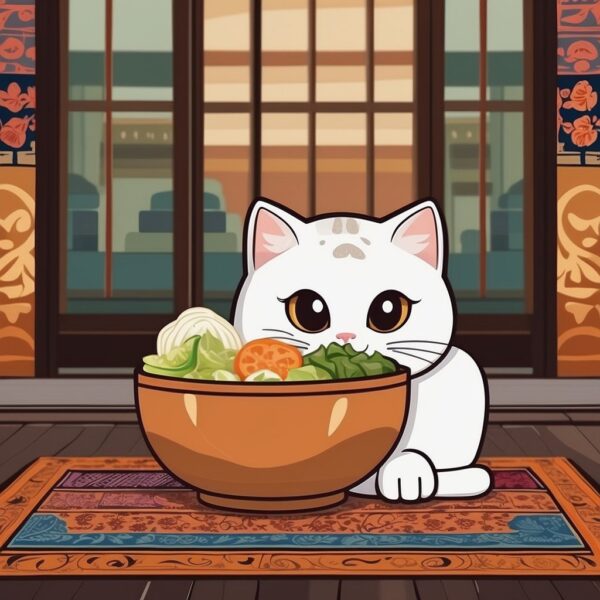
Korean Names for Cats: Meaningful Choices
Selecting a name for your feline friend is an enjoyable and meaningful task, especially when exploring the rich tapestry of Korean culture. Korean cat names often carry deep significance, reflecting the country’s language and traditions. Whether inspired by the natural beauty of Korea, K-POP culture, culinary delights, or the nuanced meanings attributed to words, there is a wealth of beautiful and unique names to choose from for both male and female cats.
In cat naming, just as in other aspects of life, Koreans often consider the personality and characteristics of the cat. The names are thoughtfully given, sometimes inspired by the Chinese zodiac, which is also part of Korean heritage, or by words that encapsulate the cat’s traits or the parent’s hopes and aspirations for their cat. Careful consideration is given to ensure that the name not only sounds melodious but also holds a meaningful narrative.
Key Takeaways
- Korean cat names are deeply rooted in the country’s culture and language.
- These names often reflect significant aspects of the cat’s personality or the parent’s aspirations.
- Choosing a culturally resonant name can add depth to the naming process and celebrate Korean heritage.
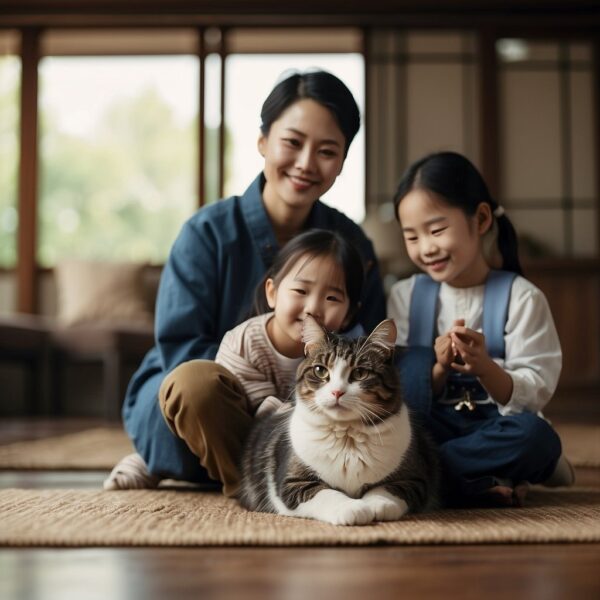
The Significance of Names in Korean Culture
In Korean culture, names are not only a means of identification but also carry great significance, often encompassing elements of honor, grace, and wisdom. Names are chosen with great care, reflecting the history and societal values.
Historical Context
Korean names historically consist of a family name followed by a given name. Traditionally, the given name is often composed of two Sino-Korean morphemes, each carrying distinct meanings that seek to bestow virtues or aspirations upon the individual. These names are chosen to reflect the family’s hopes for the child, conveying traits such as wisdom and grace. Moreover, names are deeply rooted in the heritage and can signify the family’s geographical origin or lineage.
The selection of names is influenced by Confucian ideals, where great emphasis is placed on honor and respect for one’s family and ancestors. The name is not only a label but a symbol of the individual’s place within the family and society at large.
Modern Practices
In contemporary Korean society, while the importance of a meaningful name persists, there has been a shift towards simpler or single-syllable given names. Parents often choose names that are both auspicious and easy to pronounce, reflecting current trends and international influence. However, the core practice of selecting a name that conveys positive attributes and potential remains steadfast.
To illustrate, consider the following common elements found in modern Korean names:
- Miso: signifies a “smile,” reflecting a cheerful disposition.
- Baram: translates as “wind,” evoking a sense of freedom and swiftness.
- Haneul: means “sky,” symbolizing hope and dreams.
The naming process often involves seeking the guidance of elderly family members or cultural experts, maintaining the value of honor within familial structures. This practice upholds the long-standing tradition of recognizing names as an integral part of one’s identity, imbued with cultural significance and personal meaning.
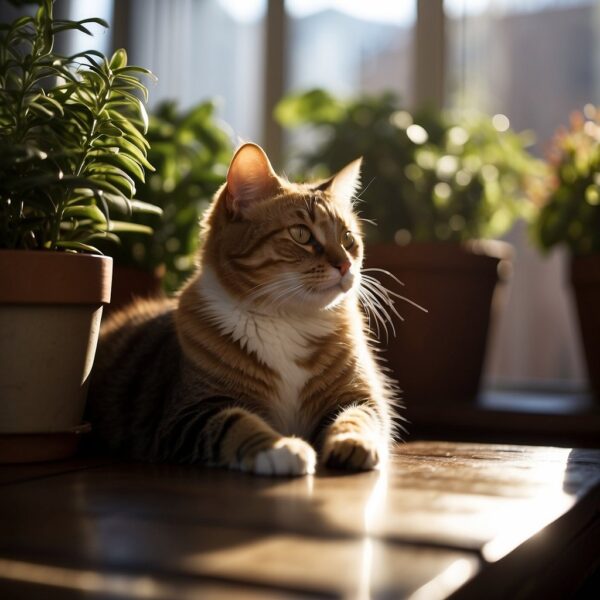
Naming Conventions for Korean Cats
In Korea, the tradition of naming cats involves a delightful blend of linguistic characteristics and cultural significance. Cat parents often choose names that reflect desirable traits, natural elements, or personal hopes for their feline companions.
Common Prefixes and Suffixes
Koreans frequently use certain prefixes and suffixes in naming that carry specific meanings or denote particular qualities. For example, the suffix “-hwa” often relates to beauty and is used in names like “Bon-Hwa,” which means “glorious.” Similarly, “Chin-” can denote wealth or truth, as seen in “Chin-Hwa” for “most wealthy” or “Chin-Mae” for “truth.”
Table of common prefixes and suffixes in Korean cat names:
| Prefix/Suffix | Meaning |
|---|---|
| Bon- | Original, standard |
| Chin- | Precious, true |
| -hwa | Beauty, glory |
| -mae | True, genuine |
These elements are often combined with other words to create a name with a desired meaning for the cat.
Gender-Specific Names
When it comes to male and female cats, certain names are preferred for each gender. Male cat names in Korea might often have strong consonants and embody masculine qualities. For instance, “Gi” can mean “brave” or “energy,” making it a popular choice for male cats. Conversely, female cat names might lean towards softer sounds and often echo beauty or grace. “Eun,” signifying “silver,” is a common choice for female cats, perhaps suggesting elegance and poise.
List of gender-specific names:
- Male Cat Names:
- Gi: Brave, energy
- Bong: Phoenix
- Female Cat Names:
- Eun: Silver
- So: Smile; a variation could be “Miso”
Choosing a Korean name for one’s cat is a thoughtful process that reflects both the parent’s affection for their cat and the cultural heritage that imbues these names with deep meanings.
Popular Korean Cat Names and Their Meanings
Choosing a Korean name for one’s cat often involves finding a name that resonates with the guardian’s aspirations for their cat, reflects the cat’s characteristics, or pays homage to elements of nature. Each name carries a distinctive significance and is selected to convey a specific sentiment or trait.
Names Inspired by Nature
- Hae: This name translates to ocean, evoking the vastness and serene beauty of the sea.
- So : Meaning small, this name is apt for cats with petite features or gentle personalities.
Names Based on Personality Traits
- Yeo : A name that means mildness, suitable for a cat with a calm and gentle demeanor.
- Ho : Denoting goodness or virtue, this name represents the parent’s view of their cat as a benevolent presence in their life.
Names with Wishes and Hopes
- Hea : Connoting grace, this name might be chosen to bless the cat with elegance and poise.
- Meaning: Each of these names is imbued with the parent’s aspirations for their cat to embody the attributes or qualities signified by the name. Whether it’s the calmness of the ocean, the small size described by So, or the wish for Hea to move gracefully, the chosen name often speaks volumes about the bond and affection between the cat and their guardian.
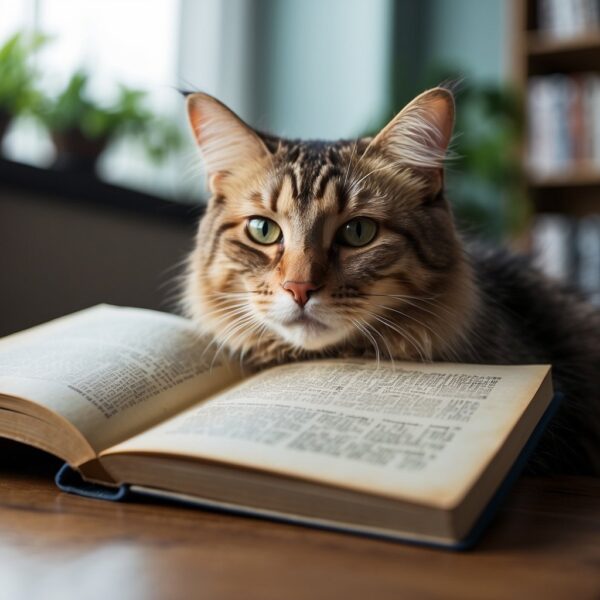
Choosing the Right Name for Your Cat
Selecting an appropriate name for a cat should resonate with its appearance, character, or your personal affinities. A well-chosen name can enhance the bonding process and reflect your kitty’s unique identity.
Names Reflecting the Cat’s Appearance
For felines with distinct physical traits, names that denote beauty or distinctiveness are excellent choices. For a cat with an immaculate white coat, “Haneul” meaning ‘sky’ could epitomize its celestial purity. Alternatively, “Bong” which translates to ‘Phoenix’, may suit a cat with fiery-hued fur suggestive of the mythical bird’s vibrant flames.
Names Highlighting the Cat’s Character
A cat’s demeanor significantly influences the naming process. Cats exhibiting resilience and strength might be fittingly named “Kwan” indicating ‘strong’. If your cat is particularly knowledgeable or displays wisdom, “Ji-a” could encapsulate these traits, meaning ‘wisdom’. For playful and energetic felines, “Jollin”, translating to ‘sleepy’, can be a charmingly ironic choice, highlighting their spirited nature.
Names with a Personal Touch
Incorporate your tastes into your cat’s name for a unique personal connection. If K-pop fascinates you, a name inspired by a favorite artist could be both a personal gesture and a nod to Korean culture. Alternatively, consider names that relate to your cat’s quirks or habits which can lead to names inspired by Korean cuisine or pop culture if they match your cat’s temperament.
Top Male and Female Korean Cat Names
Choosing a Korean name for a cat can offer a meaningful and unique moniker that reflects its personality or appearance. This section provides a selection of popular and beloved Korean names for both male and female felines.
Most Loved Male Cat Names
In the realm of male cat names, “Bae” stands out, signifying “inspiration,” which could be a perfect fit for an inspiring feline companion. “Min-ho”, translating to “brave and heroic,” is ideal for a courageous kitty. Here’s a brief list of male Korean cat names:
- Bae: Inspiration
- Min-ho: Brave and Heroic
- Bon-Hwa: Glorious
- Chin-Hwa: Most Wealthy
- Chul: Firm
- Seok: Stone, signifying solidity
- Hwan: Bright and Shining
Favorite Female Cat Names
Turning to female felines, “In-Na”, meaning “graceful,” is often chosen for cats with a delicate and elegant demeanor. “Yeon-ja” represents a woman of grace and is well-suited for a noble and poised cat. Some of the favorite names for female cats are:
- In-Na: Graceful
- Yeon-ja: Woman of Grace
- Ji-a : Wisdom and Know-how
- Hae: Ocean, great for a cat with a calm, soothing presence
- Gaeul : Autumn, perfect for a cat with a warm, comforting nature
- Mee: Beauty
- Bong-Cha: Super girl, fitting for a cat with a lively, spirited character
Cultural References in Korean Cat Names
When selecting a name for their feline companions, many cat parents in South Korea and beyond look to their rich culture, which includes a strong influence from Korean dramas and pop culture, as well as traditional mythology. These names often carry significant meaning and provide a glimpse into the aspects of culture that hold personal importance or appeal to the cat guardian.
Influence of Korean Dramas and Pop Culture
Korean dramas and K-pop have gained immense popularity internationally, influencing many aspects of daily life, including pet naming. Beloved characters and idols often inspire the names chosen for cats. A character known for their resilience or charm in a popular drama set in Seoul might lend their name to a cat, while an upbeat and catchy K-pop song title or a group member’s name could also be a source of inspiration.
- K-drama Inspired Names: Characters such as “Joon” or “Hye” have been admired for their roles in series that showcase traditional and modern Korean narratives.
- K-pop Influences: Names like “Suga” or “Jin,” after members of BTS, one of the most renowned K-pop groups, reflect the influence of Korean popular music.
Names Derived from Korean Mythology
Mythology plays a significant role in Korean culture, and this extends into the realm of cat names. Names with historical and mythological significance are chosen for their deep meanings and connections to the past. These names often embody qualities such as strength, beauty, or virtue.
- Mythological Figures: Notable figures from Korean myths, such as “Mireu,” a legendary god of Korean mythology, can serve as unique names for cats.
- Symbolism: Elements like “Mulgogi” meaning fish, often related to water and believed to bring good fortune, are also popular choices for cat names, drawing from Korean mythological association with natural elements.
By choosing names that reference Korean drama characters, K-pop figures, or mythological entities, cat parents pay homage to a culture that values both its modernity and rich historical traditions.
Regional Differences in Naming Cats
In Korea, the naming of cats often reflects the diverse cultural nuances between urbanized areas and the countryside, as well as the distinct regional identities of the North and South.
Major Cities and Rural Areas
In major cities like Seoul, cat names are often influenced by contemporary culture and trends. Cat parents in urban areas may choose names that are stylish or have a modern vibe, often borrowing terms from K-pop, Korean dramas, and celebrities. For instance, names like Haneul meaning ‘sky’, and Jinju meaning ‘pearl’ are popular for their trendy and poetic feel.
In contrast, rural areas in South Korea may favor more traditional and nature-inspired names. These names often hold significant meanings related to the rural lifestyle or the natural environment. Examples include Bori for ‘barley’, a common crop, and Nabi for ‘butterfly’, symbolizing the light-hearted nature of cats.
North vs. South Korea
While information on cat naming practices in North Korea is limited due to the country’s closed-off nature, one can infer that names might reflect the prevailing socio-political environment or the Juche ideology propagated by the state. These names could be indicative of qualities like resilience or be inspired by natural elements connected to the Korean landscape.
In South Korea, there is a dynamic range of influences, from traditional Korean culture to global trends, which shape how cats are named. Cat parents may use both pure Korean words and Sino-Korean terms that have Chinese roots but are used in the Korean language. Names such as Eui representing ‘righteous’ and Daeshim for ‘greatest mind’ can reflect personal traits the parent might admire or wish to instill in their cat.
By examining the regional variations, one can appreciate the rich tapestry of cultural influences that impact how Korean cat parents name their cats. From the cosmopolitan energy of cities to the charm of the countryside, and the contrasting realities across the North and South divide, each name carries with it a story deeply interwoven with Korean life.
Korean Food-Inspired Cat Names
Inspired by the rich and diverse flavors of Korean cuisine, cat parents can choose names that reflect their affection for both their cats and their favorite Korean dishes.
Names After Korean Dishes
Bibimbap: A popular Korean dish, Bibimbap combines rice with mixed vegetables, meat, and a fried egg. This name could suit a cat with a mixed-color coat or a dynamic personality.
- Kimchi: This traditional side dish made from fermented vegetables is both spicy and distinct. A cat with a feisty or spirited character might carry this name well.
Table 1: Korean Dish Inspired Cat Names
| Korean Dish | Cat Name | Description |
|---|---|---|
| Bibimbap | Bibim | Perfect for a mixed breed cat with a vibrant personality. |
| Kimchi | Kimchi | Ideal for a cat with a bold and zesty demeanor. |
Sweet and Savory Name Options
Korean cuisine offers a harmony of sweet and savory flavors that can be reflected in cat names. For example:
- Hoddeok: Sweet syrupy pancakes that might be fitting for a sweet-natured and cuddly cat.
- Yakgwa: A honey-flavored dessert, suitable for a loving and affectionate cat.
Table 2: Sweet and Savory Korean Food Names
| Korean Food | Cat Name | Description |
|---|---|---|
| Hoddeok | Hodu | A cute name for a sweet and charming cat. |
| Yakgwa | Yaki | Perfect for a delightful cat that brings joy. |
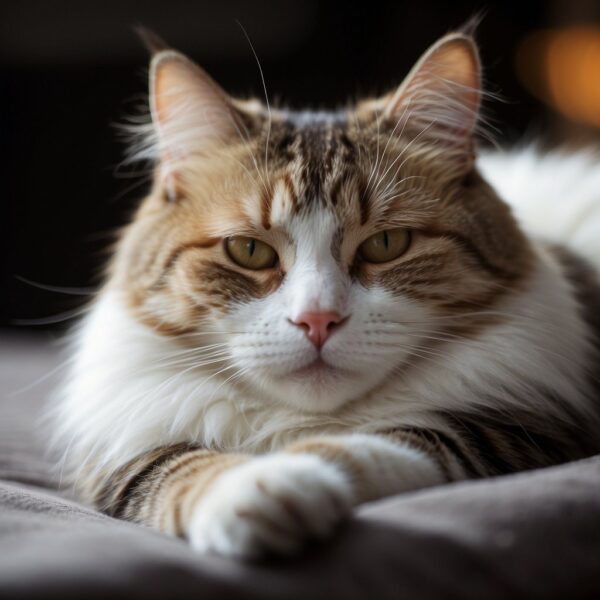
Frequently Asked Questions
Choosing a Korean name for a feline friend can reflect the parent’s appreciation for Korean culture. The names provide a range of meanings, making it easy to find the perfect match for any cat’s personality or appearance. Below are some commonly asked questions about Korean cat names.
What are some popular Korean cat names for female cats?
Female cats may be given names such as Ji-a, which symbolizes wisdom and knowledge, or In-Na, reflecting grace and delicacy. Other options include Nam-sun, embodying purity and sincerity, and Hae, representative of the vast ocean.
Can you suggest some common male cat names in Korean?
For male cats, one might consider names like Byung-ho, meaning brave or illustrious, or Min-ho, which stands for brightness and goodness. Ji-hun, denoting wisdom and rank, is also a popular choice.
What are some adorable and cute Korean names for kittens?
Kittens could be adorably named Soo, implying purity, or Bokshiri, echoing the softness and fluffiness of cotton. Yeppi, translating to pretty, is a fitting choice for a charming kitten.
Could you list unisex Korean cat names and their meanings?
Unisex Korean cat names include Eun, meaning silver, and Seok, denoting rock or stone, symbolizing strength and steadfastness. Haneul can be an appealing name, representing the sky or heaven.
Where can I find a list of meaningful Korean cat names?
For a comprehensive list of Korean cat names with meanings, one could refer to articles and resources that specialize in Korean pet names. These often provide insights into the cultural significance and linguistic nuances behind the names.
What are some unique Korean cat names for a white cat?
A white cat may carry the name Hae-Nun, reflecting the trait of being merciful, or Eun, signifying the color silver but also associated with purity and clarity, akin to the appearance of a white cat.